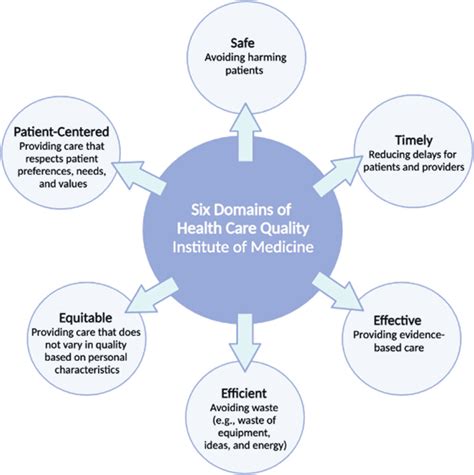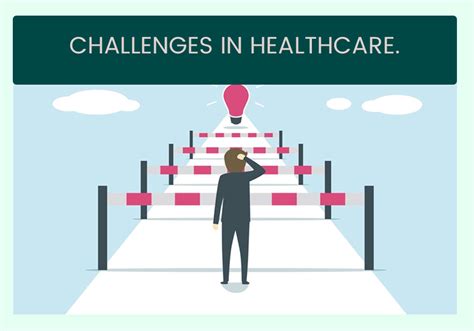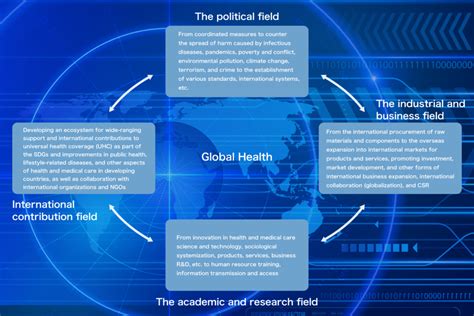Intro
Discover the fundamentals of healthcare, including medical services, health systems, and patient care, to understand the complexities of the healthcare industry and its role in promoting well-being and disease prevention.
The concept of healthcare is multifaceted and plays a vital role in the well-being of individuals and societies worldwide. Healthcare encompasses a broad range of services, treatments, and interventions aimed at maintaining, restoring, or improving physical and mental health. The importance of healthcare cannot be overstated, as it directly impacts the quality of life, life expectancy, and overall health outcomes of populations. As such, understanding the intricacies of healthcare is essential for navigating the complex healthcare systems, making informed decisions about health, and advocating for better health policies and practices.
Healthcare is not just about treating illnesses; it's also about preventing them. Preventive care, which includes screenings, vaccinations, and health education, is a critical component of healthcare. By focusing on prevention, individuals can reduce their risk of developing chronic diseases, such as diabetes, heart disease, and certain types of cancer. Moreover, preventive care can help identify health issues early on, when they are more treatable and less likely to result in serious complications. The significance of preventive care underscores the need for accessible, affordable, and comprehensive healthcare services that cater to the diverse needs of populations.
The delivery of healthcare services is influenced by a myriad of factors, including economic conditions, technological advancements, and societal values. In recent years, there has been a shift towards patient-centered care, which emphasizes the importance of involving patients in decision-making processes and tailoring healthcare services to meet their unique needs and preferences. This approach recognizes that patients are not just passive recipients of care but active participants who should be empowered to take control of their health. As healthcare continues to evolve, it is likely that patient-centered care will remain a cornerstone of effective and compassionate healthcare delivery.
Introduction to Healthcare Systems

Healthcare systems around the world vary significantly in terms of their structure, financing, and delivery of services. Understanding these differences is crucial for developing effective health policies and improving health outcomes. Generally, healthcare systems can be categorized into several models, including the Beveridge model, the Bismarck model, and the national health insurance model. Each model has its strengths and weaknesses, and countries often adopt a mix of these models to suit their specific needs and context.
Key Components of Healthcare Systems
The key components of healthcare systems include healthcare providers, healthcare facilities, and healthcare technologies. Healthcare providers, such as doctors, nurses, and allied health professionals, play a vital role in delivering healthcare services. Healthcare facilities, ranging from primary care clinics to tertiary care hospitals, provide the infrastructure necessary for healthcare delivery. Healthcare technologies, including medical equipment, diagnostic tools, and information systems, support the provision of high-quality care.Benefits of Quality Healthcare

Quality healthcare offers numerous benefits, both at the individual and societal levels. For individuals, access to quality healthcare can improve health outcomes, enhance quality of life, and increase life expectancy. At the societal level, quality healthcare can contribute to economic growth, reduce healthcare disparities, and promote social cohesion. Moreover, investments in healthcare can have long-term benefits, such as reducing the burden of chronic diseases and improving population health.
Improving Health Outcomes
Improving health outcomes requires a multifaceted approach that addresses the social determinants of health, enhances healthcare access, and promotes health equity. The social determinants of health, including factors such as income, education, and housing, play a significant role in shaping health outcomes. By addressing these determinants, policymakers and healthcare professionals can reduce health inequities and improve health outcomes for vulnerable populations.Challenges in Healthcare

Despite the importance of healthcare, there are numerous challenges that hinder the delivery of quality healthcare services. These challenges include healthcare workforce shortages, inadequate healthcare infrastructure, and limited access to healthcare services. Additionally, the rising costs of healthcare, coupled with the increasing burden of chronic diseases, pose significant challenges for healthcare systems worldwide.
Addressing Healthcare Disparities
Addressing healthcare disparities is essential for promoting health equity and improving health outcomes. Healthcare disparities refer to the differences in health outcomes and access to healthcare services that exist among different population groups. These disparities can be attributed to various factors, including socioeconomic status, geographic location, and racial or ethnic background. By acknowledging and addressing these disparities, healthcare professionals and policymakers can work towards creating a more equitable healthcare system.Future of Healthcare

The future of healthcare is likely to be shaped by technological innovations, shifting demographics, and evolving patient needs. Technological advancements, such as telemedicine and artificial intelligence, are poised to transform the delivery of healthcare services, making them more accessible, efficient, and personalized. Moreover, the growing demand for healthcare services, driven by aging populations and the increasing burden of chronic diseases, will require healthcare systems to adapt and innovate.
Role of Technology in Healthcare
Technology is playing an increasingly important role in healthcare, enabling the development of new treatments, improving patient outcomes, and enhancing the overall quality of care. Electronic health records, for instance, have improved the accuracy and accessibility of patient data, while telemedicine has expanded access to healthcare services for remote and underserved populations. Furthermore, advances in medical research and development are leading to the discovery of new treatments and therapies, offering new hope for patients with complex and debilitating conditions.Healthcare Policy and Reform

Healthcare policy and reform are critical for shaping the future of healthcare and addressing the challenges facing healthcare systems. Policymakers must balance competing priorities, such as controlling healthcare costs, improving access to care, and enhancing the quality of services. Moreover, healthcare reform efforts must be informed by evidence-based research and guided by a commitment to improving health outcomes and promoting health equity.
Importance of Health Literacy
Health literacy is essential for empowering patients to take control of their health and navigate complex healthcare systems. Health literacy refers to the ability of individuals to obtain, process, and understand basic health information and services needed to make appropriate health decisions. By promoting health literacy, healthcare professionals can improve patient outcomes, reduce health disparities, and enhance the overall quality of care.Global Health Initiatives

Global health initiatives are critical for addressing the health challenges facing populations worldwide. These initiatives, which include efforts to combat infectious diseases, improve maternal and child health, and promote mental health, require international cooperation, coordination, and commitment. By working together, countries can share knowledge, resources, and expertise to improve health outcomes and promote health equity.
Role of International Organizations
International organizations, such as the World Health Organization (WHO) and the United Nations Children's Fund (UNICEF), play a vital role in promoting global health and addressing health disparities. These organizations provide technical assistance, funding, and advocacy support to countries, enabling them to strengthen their healthcare systems and improve health outcomes. Moreover, international organizations can facilitate the sharing of best practices, promote research and development, and coordinate global responses to health crises.Conclusion and Next Steps

In conclusion, healthcare is a complex and multifaceted field that plays a critical role in promoting the health and well-being of individuals and societies. By understanding the importance of healthcare, the benefits of quality healthcare, and the challenges facing healthcare systems, we can work towards creating a more equitable, efficient, and effective healthcare system. As we move forward, it is essential to prioritize healthcare policy and reform, promote health literacy, and support global health initiatives. By taking these steps, we can improve health outcomes, reduce health disparities, and promote a healthier, more prosperous future for all.
What is the importance of preventive care in healthcare?
+Preventive care is essential for reducing the risk of chronic diseases, improving health outcomes, and promoting health equity. By focusing on prevention, individuals can avoid costly and debilitating health conditions, improving their overall quality of life.
How can healthcare systems address health disparities?
+Healthcare systems can address health disparities by acknowledging and addressing the social determinants of health, improving access to care, and promoting health equity. This can involve targeted interventions, community-based programs, and policy reforms aimed at reducing health inequities.
What role can technology play in improving healthcare outcomes?
+Technology can play a significant role in improving healthcare outcomes by enabling the development of new treatments, improving patient outcomes, and enhancing the overall quality of care. Electronic health records, telemedicine, and artificial intelligence are just a few examples of how technology is transforming the healthcare landscape.
We invite you to share your thoughts and experiences related to healthcare in the comments below. Your insights can help inform and improve healthcare policies, practices, and outcomes, ultimately contributing to a healthier and more equitable society for all.
